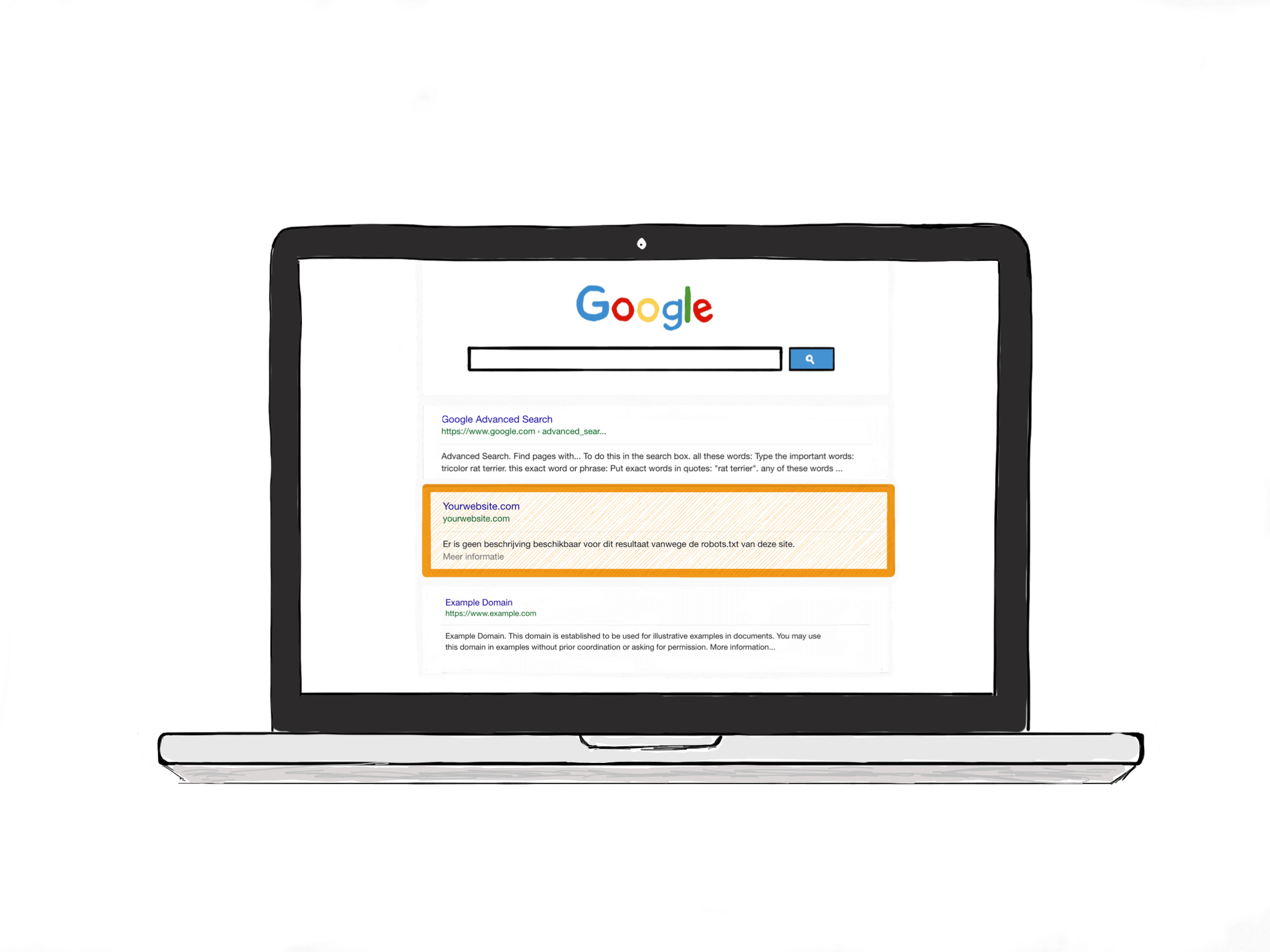SEO keywords or Google keywords are search terms that people use to find information. If you want to be found in Google you need to know which words they are. You can discover this with the help of a keyword search.
Beautiful keywords, but no one uses them
The internet is a ruthless medium when it comes to choosing the right SEO keywords. Marketing and Communication people can come up with the best terms, but if no one uses these terms to search, your website will not be found. For more than 80% of internet users (source: Nielsen), a search on the internet starts with a search engine and in the Netherlands it is Google. Google provides the user with the information he or she is looking for based on the words being typed. It is up to you whether you want to be included in those results or not.
Examples where things go wrong with SEO keywords
Choosing the right SEO keywords in Google is often more difficult than you think. A few examples: A famous electronics A-brand has once determined that their equipment is so special, that you can not call a dishwasher of that brand a dishwasher, but a kitchen unit cleaner. Nicely thought, but the latter is in the Netherlands only 2400 times per month sought and on the word dishwasher 165,000 times. What do you do as a web editor? Use the popular word, stick to your marketing strategy or both?
SEO Keywords in Google: Health sector example
In the healthcare sector it has been decided that ‘retirement home’ is not a politically correct word and that ‘residential care institution’ is a better name. Only a few people use the word residential care institution in Google and the word retirement home is more than 30,000 times per month in searches. If you want your website to be found in search engines, you can not avoid having to connect with your own target groups and their choice of words. Of course, you do that within certain limits; you will probably never use the word ‘coin’ or ‘shilling’ instead of ‘money’ or gross, indecent language. More on Ranking high in Google.
Always start with a search query
A good SEO strategy always starts with a thorough SEO keywords research. Also when developing a new website is not the functional design, but a keywords research the first step. Through a keyword search, you will get to know your target audience and you will discover whether different SEO keywords can be used for the same topic in the business or consumer market. Read more about keyword research here.
The golden tip to find SEO keywords
The fastest and easiest way to discover which words people use in Google is to try it out with Google Autocomplete. Just go to Google and start typing a word that you want to know if it is used and in which variants and combinations. What is happening? Google automatically completes your search with suggestions! These suggestions are based purely on the search behavior of other people; Google keeps that accurate. Try the following: Do not finish the word completely and see which ideas emerge Type one word and then a space to see which most used combinations there are For keywords with very high volumes, simply follow the alphabet at the second word Use an ‘underscore’ or asterisk * between the words to discover combinations.
SEO keywords in Google: no meta keywords!
SEO keywords are not the so-called meta keywords; they have no effect! Read about it in this article about keywords. Good SEO keywords are used in the title tag, the page title, the meta description and the text of the page. For each page, you choose only one SEO keyword or search term (multiple words that belong together, such as ‘online marketing’ or ‘seo keywords’).
SEO Keywords in Google: How to improve
SEO is an exercise that can be carried out in-house, provided you or your team are equipped with the right knowledge (up to date!). Due to the fact that Google algorithms are constantly moving and changing, it requires effort. Besides, it is a recurrent exercise. For professional assistance to improve your Google ranking, to convert visitors into leads, contact us now. We have a professional team to assist and we are trained to increase traffic from the “free,” “organic,” “editorial” or “natural” search results on search engines, for any kind of business.
Thank you for taking the time to read our blog. Enjoy your day, and don’t forget to subscribe to our free newsletter round-up!



